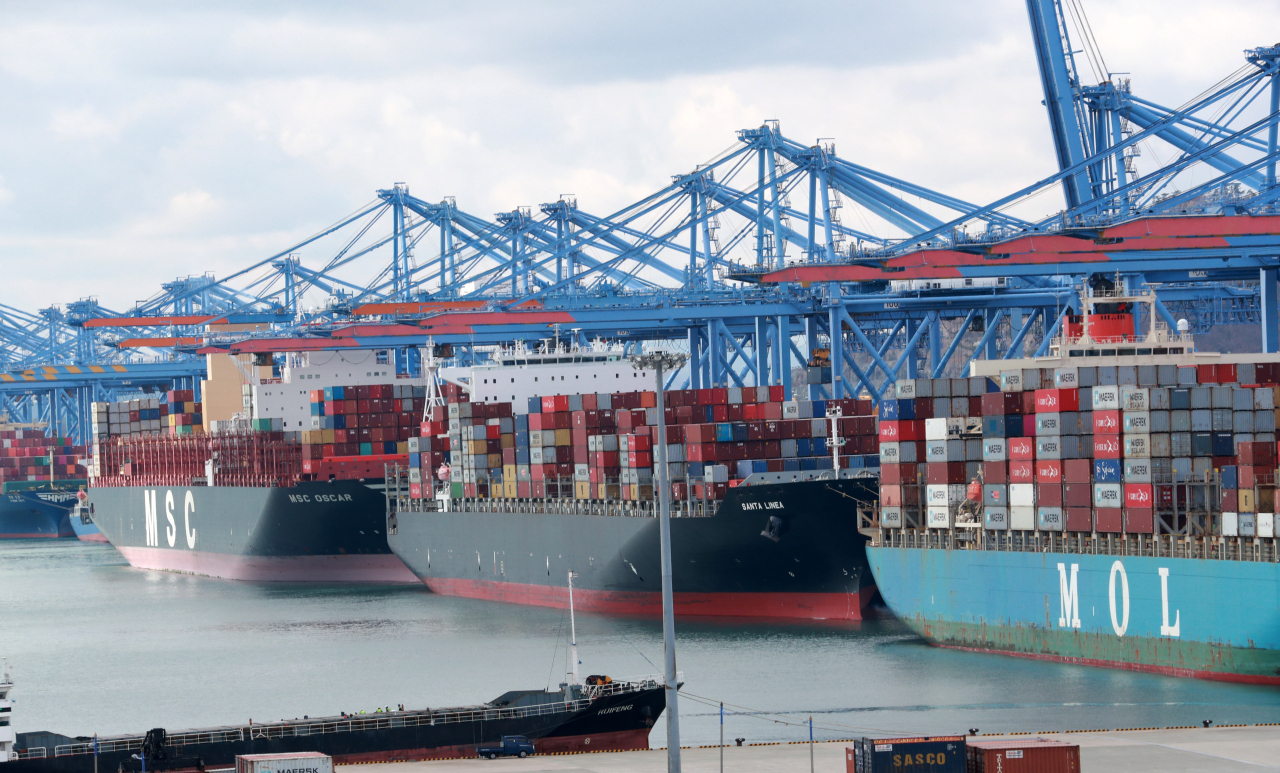 |
This file photo, taken March 2, 2021, shows ships carrying containers docking at a port in South Korea's southeastern port city of Busan. (Yonhap) |
South Korea's current account surplus slightly narrowed in March as higher oil prices increased the country's import bill, the central bank said Friday.
The current account surplus reached $7.82 billion in March, narrowing from a surplus of $7.94 billion the previous month, according to the Bank of Korea (BOK). The current account is the broadest measure of cross-border trade.
Since the country logged a deficit of $3.33 billion in April last year, the largest in almost a decade, on faltering exports amid the pandemic, the current account has stayed in the black.
The goods balance logged a surplus of $7.92 billion in March, larger than a surplus of $5.97 billion the previous month.
Exports, which account for half of the South Korean economy, rose 16.6 percent on-year in March to extend their on-year gains for the fifth consecutive month on the back of brisk demand for chips and cars.
Exports came to $53.8 billion in March, compared with $46.1 billion a year earlier.
Imports gained 18.8 percent to $49.6 billion, resulting in a trade surplus of $4.17 billion. It marked the 11th consecutive month for the country to post a trade surplus.
In March, the services account deficit stood at $900 million, compared with a surplus of $110 million the previous month.
The income account racked up a $1.28 billion surplus in March, narrowing from a surplus of $2.12 billion a month earlier.
For the first three months of this year, the country's current account surplus reached $22.82 billion, nearly doubling from a surplus of $12.93 billion during the same period of last year.
A rise in surpluses is likely to cause the Korean currency to go up and could make Korean goods more expensive overseas.
The country's overseas shipments have been battered by the fallout of the COVID-19 pandemic. But the pace of the slump has eased since June last year as major economies slowly began resuming business activities and easing border lockdowns. (Yonhap)




![[Herald Interview] 'Trump will use tariffs as first line of defense for American manufacturing'](http://res.heraldm.com/phpwas/restmb_idxmake.php?idx=644&simg=/content/image/2024/11/26/20241126050017_0.jpg)

![[Health and care] Getting cancer young: Why cancer isn’t just an older person’s battle](http://res.heraldm.com/phpwas/restmb_idxmake.php?idx=644&simg=/content/image/2024/11/26/20241126050043_0.jpg)

